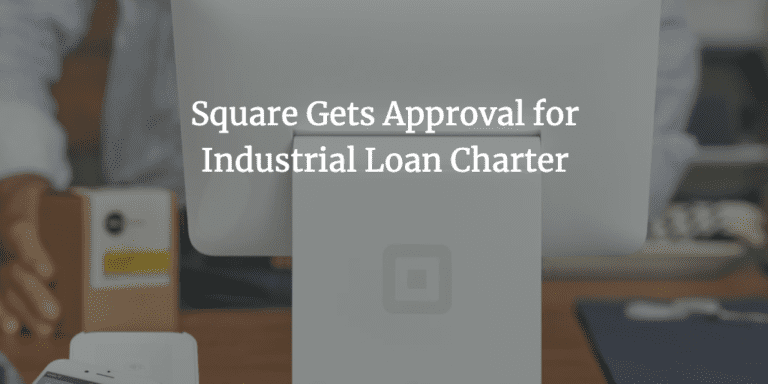
Square has officially received approval from regulators to start a Utah-based bank through what is known as an Industrial Loan Charter (ILC). Currently only seven states allow this type of charter but most of the existing ILCs have headquarters in Utah. The structure is similar to a commercial bank but the chartering process allows the bank to be owned by a regular company instead of a bank holding company.
ILCs in the past have been used for various companies to operate a financing arm. For instance a car manufacturer may seek an ILC in order to offer financing to their own customers. Another good recent example is Rakuten, a Japanese Online Retailer who applied for an ILC last year with an intention to offer loans, credit cards and other financial services to its US customers. The idea is not new in fintech either with SoFi filing an application back in 2017 (it was later pulled). While the ILC may seem like an easy choice for a fintech company, they face opposition with bank lobbying groups active in trying to prevent companies from getting approved. The argument is typically that these types of charters for non-bank institutions creates an unfair advantage.
Increasingly we are seeing established fintech companies pushing to become banks, but the path of least resistance so others can follow suit has yet to be proven out. However, it is likely that fintechs becoming banks will be the next big wave in fintech. Earlier this year Varo received approval for a National Bank Charter and LendingClub announced they were acquiring Radius Bank.
Square Financial Services, Inc. is slated to launch in 2021 and will be supervised by the FDIC and Utah Department of Financial Institutions. This has been a two and a half year journey for Square who faced many challenges along the way. Even Walmart scrapped their plans after facing opposition with their ILC application in 2007. Some of the requirements for Square Financial Services include having significantly higher levels of capital than other banks as well as having the FDIC examine Square. Still, some regulators voted against their application citing concerns over profitability. FDIC board member Martin Gruenberg stated:
Square has yet to demonstrate its viability during a downturn in the economic cycle. In fact, it has failed to demonstrate its viability during the upside of an economic cycle.
Interestingly, Nelnet a company which services student loans also received approval this week. This is an exciting time for Square, a company that already serves small businesses in so many ways. It is going to be fascinating to watch where they take the business from here as the possibilities are almost limitless.


